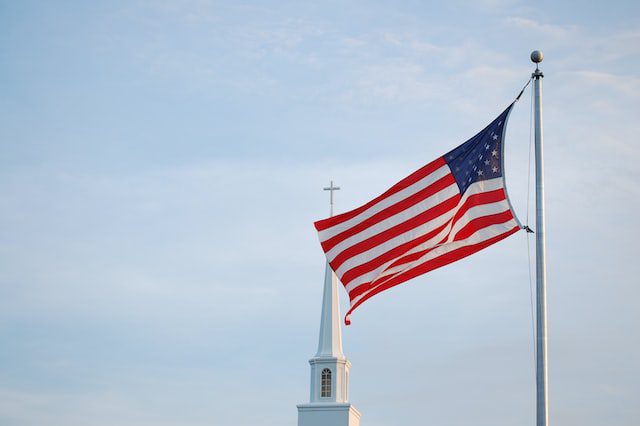
In my last piece, I addressed the topic of national founding. Was our nation built on Christian principles, and if that’s the case, does that mean Christianity influences our government?
In this piece, I would like to address the principles of Christianity and how they can be seen throughout government policy. Specifically, debt forgiveness. Is it biblical? Does the principle of jubilee apply to government policy? Does debt forgiveness really mean debt transference?
The Biden Administration announced that for those who make under $125,000 a year, up to a $10,000 forgiveness decrease would be applied to those who currently have college debt. There are mixed opinions about this program, not only from Congress but among the most vocal Christian Conservatives.
And I find it rather curious that the political side that most often identifies with the principles of Christianity takes issue with a policy that reflects principles of Christianity.
Some people insist that debt forgiveness needs to be earned. Let’s truncate that a little. “Forgiveness needs to be earned.” When I turn to my Bible, however, through and through, the message I detect is that forgiveness is not earned. Both grace and love are freely given.
There’s another idea that if you take out a loan, you must repay it, no matter what. That’s what responsible people do, right? But didn’t Jesus tell a parable about loans and debts?
Matthew 18 begins:
Then Peter came to Jesus and asked, “Lord, how many times shall I forgive my brother or sister who sins against me? Up to seven times?” Jesus answered, “I tell you, not seven times, but seventy-seven times.
Therefore, the kingdom of heaven is like a king who wanted to settle accounts with his servants. As he began the settlement, a man who owed him ten thousand bags of gold was brought to him. Since he was not able to pay, the master ordered that he and his wife and his children and all that he had be sold to repay the debt. At this, the servant fell on his knees before him. ‘Be patient with me,’ he begged, ‘and I will pay back everything.’ The servant’s master took pity on him, canceled the debt and let him go. But when the servant went out, he found one of his fellow servants who owed him a hundred silver coins. He grabbed him and began to choke him. ‘Pay back what you owe me!’ he demanded. His fellow servant fell to his knees and begged him, ‘Be patient with me, and I will pay it back.’ But he refused. Instead, he went off and had the man thrown into prison until he could pay the debt. When the other servants saw what had happened, they were outraged and told their master everything that had happened. Then the master called the servant in. ‘You wicked servant,’ he said, ‘I canceled all that debt of yours because you begged me to. Shouldn’t you have had mercy on your fellow servant just as I had on you?’ In anger his master handed him over to the jailers to be tortured, until he should pay back all he owed…” (Matthew, 18:21-34 NSV)
Yet there is this propensity for many to deny debt forgiveness to others, even though they have already had all their debts canceled. Why is that? Is it really because “this is different” (as I have heard many protests)? Is it because it’s not fair that our tax dollars are clearing loans that others chose to take out? I have heard the arguments. But as we can see from the verse in Matthew, the biblical prescription would be to take pity on those who cannot pay their debts and cancel them. Isn’t that what the government is doing? Isn’t that an obvious demonstration of how our nation is adhering to Christian principles?
I, like many others, would love to have the opportunity to decide where our tax dollars go. If I could, I would ensure none of my tax dollars fund wars or other countries that are engaging in war. The very thought that my tax dollars fund drone strikes that murder babies and innocent civilians give me chills at night. But I also have accepted the fact that once the government takes that money from me, it’s out of my control. It’s like when I borrow someone else money. I don’t get to say what they are doing with it. Just like when I donate to charities or give money to the homeless. I don’t get to say how it is spent. There are no receipts. And truth be told, I don’t need that additional paperwork.
But if you do believe that Christian influence over the government is beneficial, if not ordained within the Constitution, then where is the consistency when a new policy is created? Is it not the goal of our government to provide for the greater good? Do we not want the government to have the authority to cancel the debt? What about when it’s you that needs a debt canceled? What about when you might need some mercy or an extension to make a car payment or a mortgage payment?
Perhaps the concern is over this idea of “debt transference?” Many insist that the government cannot just make debt disappear. That someone must take on the debt. Does debt cancellation now mean debt transference? Is that how it works with God? God canceled sin…but actually transferred the debt elsewhere? To whom? Where did God transfer the debt to?
I realize that many will invest painstaking hours into trying to wiggle around this idea and find good cause to insist that all student loan forgiveness is somehow directly harming the individual citizen. And if that’s the route you want to travel down, by all means, make your choice and do so. But reflect on Matthew 18. Ask yourself if you are consistently practicing your faith, or if you are creating double standards just like the unmerciful servant. What does that mean for you and your fate?
Jesus ends the parable with this warning:
“This is how my heavenly Father will treat each of you unless you forgive your brother and sister from your heart.”












